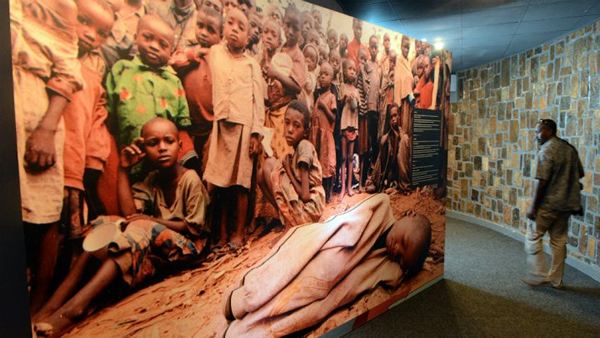
Two former Rwandan mayors go on trial in France on Tuesday facing charges of crimes against humanity and genocide over the 1994 massacres in the central African country.
As the second trial in Paris by a special court created to go after suspected Rwandan killers who fled to France, it is expected to lay bare the strained relations between the two countries.
Two decades on, Rwanda accuses France of complicity in the genocide — which saw at least 800,000 people die in an 100-day slaughter — because of its unwavering support for the Hutu nationalist government at the time.
Two years ago, on the 20th anniversary of the mass killings, Rwanda’s minority Tutsi president, Paul Kagame, openly accused French soldiers of not only complicity in the genocide but of actually taking part in it.
On Tuesday, Octavien Ngenzi, 58, and Tito Barahira, 64, will go on trial for allegedly playing a direct role in the massacre of hundreds of Tutsi refugees in a church in the eastern town of Kabarondo on April 13, 1994.
The pair were sentenced in absentia to life imprisonment by Rwandan people’s courts, known as gacaca, in 2009.
They were both mayors of Kabarondo, Ngenzi having succeeded Barahira in 1986.
They deny accusations of carrying out “massive and systematic summary executions” and implementing a “concerted plan aimed at the annihilation” of the Tutsi minority.
Their lawyers Philippe Meilhac and Francoise Mathe have highlighted “contradictions” in witness testimony.
Meilhac has also said he is “extremely concerned” over Barahira’s fitness to stand trial, as he suffers from kidney failure and must have dialysis three times a week.
The killings in Kabarondo, a town near the border with Tanzania, took place with great speed.
The bloodshed was over by the end of April, when Tutsi rebels in the armed wing of what is now the ruling Rwandan Patriotic Front (FPR) took control of the area.
Elsewhere in the former Belgian colony, the slaughter would continue until the FPR fighters finally prevailed in July.
The mayors’ trial, which is set to last eight weeks, comes two years after that of Pascal Simbikangwa, a former Rwandan army captain who was jailed for 25 years for his role in the genocide.
The defence has denounced that verdict as “political” and is appealing it.
“With this second trial, we will be dealing with a much more concrete genocide, with victims,” said Alain Gauthier, president of the Collective of Civil Plaintiffs for Rwanda (CCPR).
“There are around 50 witnesses coming from Rwanda,” Gauthier, whose wife lost her mother and dozens of other relatives in the genocide.
Source: Punch

